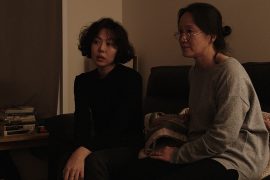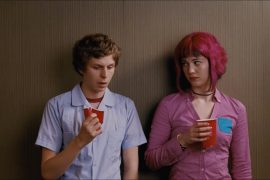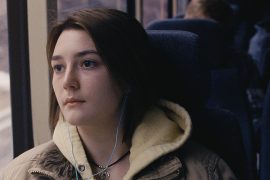In A Hidden Life, director Terence Malick’s ninth feature film once again presents a couple closely tied to nature and torn by the darkness brought by the humans upon it. Reaching all the way back to his first feature, the 1973 lyrical Badlands, loosely based on the Charles Starkweather killings, once again his inspiration is a true story of a couple set in a past decade where things seem simpler, and yet more starkly beautiful and deadly. Nature plays an important role, and it is the way in which Malick handles these two competing forces of the couple’s fleeting humanity - the eternal and the fragile, that form the crux of the film. The spiritual presence is where Franz Jägerstätter (August Diehl) has no principal doubts. He is an utterly faithful and devoted Christian. We see him as a husband to his wife Fanny (Valerie Pachner) and father to his three girls, a caring son to his old single mother (having lost his father in the previous war) and loyal Burger, farmer, a caring friend.
Franz Jägerstätter was an Austrian conscientious objector during World War II. As an Austrian compelled into unwanted military service, his spiritual world as much as his earthly one was shaken to the core. He never saw an actual combat, but he heard of gruesome acts done in the name of Nazi Germany. Franz refused to take the Hitler Oath which referred to the oath of allegiance sworn by the officers and soldiers of the German Armed Forces and their supporters between the years 1934 and 1945. From this moment on, the film deals with excruciating issues of belief in essential goodness and many meanings of love and sacrifice, and finally the role of Church and faith in delicate times of war. The backdrop of all human suffering is once again a focus of the director’s camera - here, the most beautiful and striking nature of the Austrian village, invoking the presence and raising the question of a higher good, offset by the darker impasse of man and his crucial narrative role he must oppose on the land.
Fanny is left alone to care of their three girls in the same village, now full of resentment as Franz dared to act upon his own conscience. The importance of the landscape is key to the understanding the story of Franz and Fanny - their ultimate powerlessness against their own human nature. Franz is not able to turn the blind eye and do as he was told and Fanny has to struggle with her own nature to understand him and ultimately forgive him. Franz is convinced war is wrong and unjust. He will ultimately carry on with his decision but not without a certain ‘permission’. The permission comes from Fanny and her last visit to him in prison, accompanied with fellow priest from the village and his court-appointed attorney to convince him to finally sign the paper of redemption.
Fanny’s restored faith in her husband is the ultimate sign of love and her word of support and telling Franz she will be by his side however it will be, gives Franz a last push and meaning of the struggle he endured for the most of the film. The voiceover that begins as correspondence between husband and wife and governs the narrative is gradually taken over by Fanny. Her realization that the Lord will not hear all of her prayers, coupled with her doubts make her lose her innocence. This struggle forces her to ‘grow up’ and face the consequences of love she has for her faithful and loving husband. The effect of her narration is felt as the director’s intention to empower Fanny in her future life and further fights.
It’s as depressing as it sounds, sickening for the justifiable position of Catholic Church in the Great War of all wars, where poignant words of Jean Renoir in his Rules of the Game “Awful thing about this life is that everybody has their reasons’” prove to be true, as even the priests have reasons to object to the ideals of Christianity and turn a blind eye, accepting the cruel reality. By doing the right thing Franz will suffer and be refused, misunderstood, cursed but at the same time loved and respected by his wife and family and even beatified by the same Church that had no strength and understanding for him in the first place. For Terrence Malick however, the hidden life is the reward Franz finds not in posthumous near-sainthood, but the reward of knowing his devoted wife who stayed by his side and loved him enough to lose him.



